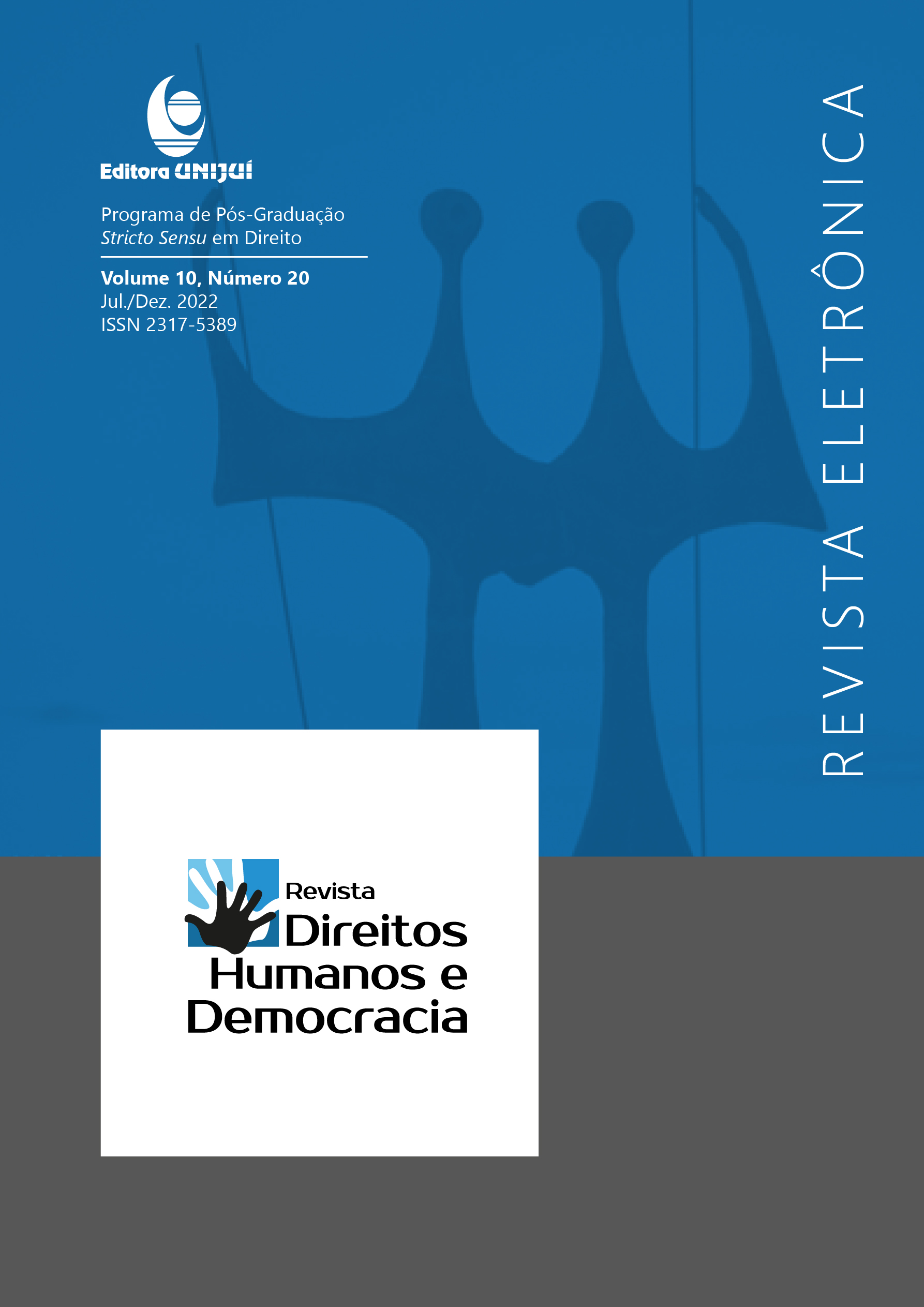Violência estrutural, direito à saúde e COVID-19
DOI:
https://doi.org/10.21527/2317-5389.2022.20.13518Palavras-chave:
Covid-19; Dignidade humana; Direito à saúde; Restrição a direitos fundamentais; Violência estruturalResumo
O objetivo da pesquisa é investigar a relação entre a violência estrutural no campo da saúde pública e seu reflexo no enfrentamento da pandemia pela Covid-19, motivo pelo qual a problemática do estudo está em esclarecer a ligação entre o histórico processo de realização insatisfatória de políticas públicas de saúde desde 1988 e seus desdobramentos na conjuntura da emergência sanitária enfrentada pelo Brasil. O estudo utilizou o método dedutivo, sendo descritivo-exploratório como procedimento e as técnicas de pesquisa bibliográfica e documental. Os resultados da pesquisa revelaram que há políticas públicas de saúde, mas ainda aquém das exigências mínimas, podendo ser constatadas pela falta de leitos de hospital, por exemplo; e há carência de recursos para aplicação em políticas públicas, observando-se mudanças constitucionais para esse fim, a exemplo das Emendas Constitucionais nº 86/2015 e nº 95/2016. Assim, concluiu-se que o Estado colabora, por incompetência ou escolha, para a promoção da violência estrutural no campo da saúde, pela falta de serviços e pela redução de recursos.
Downloads
Publicado
Como Citar
Edição
Seção
Licença
Copyright (c) 2022 Revista Direitos Humanos e Democracia

Este trabalho está licenciado sob uma licença Creative Commons Attribution 4.0 International License.
Ao publicar na Revista Direitos Humanos e Democracia, os autores concordam com os seguintes termos:
Os trabalhos seguem a licença Creative Commons Atribuição 4.0 Internacional (CC BY 4.0), que permite:
Compartilhar — copiar e redistribuir o material em qualquer meio ou formato;
Adaptar — remixar, transformar e criar a partir do material para qualquer fim, inclusive comercial.
Essas permissões são irrevogáveis, desde que respeitados os seguintes termos:
Atribuição — os autores devem ser devidamente creditados, com link para a licença e indicação de eventuais alterações realizadas.
Sem restrições adicionais — não podem ser aplicadas condições legais ou tecnológicas que restrinjam o uso permitido pela licença.
Avisos:
A licença não se aplica a elementos em domínio público ou cobertos por exceções legais.
A licença não garante todos os direitos necessários para usos específicos (ex.: direitos de imagem, privacidade ou morais).
A revista não se responsabiliza pelas opiniões expressas nos artigos, que são de exclusiva responsabilidade dos autores. O Editor, com o apoio do Comitê Editorial, reserva-se o direito de sugerir ou solicitar modificações quando necessário.
Somente serão aceitos artigos científicos originais, com resultados de pesquisas de interesse que não tenham sido publicados nem submetidos simultaneamente a outro periódico com o mesmo objetivo.
A menção a marcas comerciais ou produtos específicos destina-se apenas à identificação, sem qualquer vínculo promocional por parte dos autores ou da revista.
Contrato de Licença: Os autores mantém os direitos autorais sobre seu artigo, e concedem a Revista Direitos Humanos e Democracia o direito de primeira publicação.













